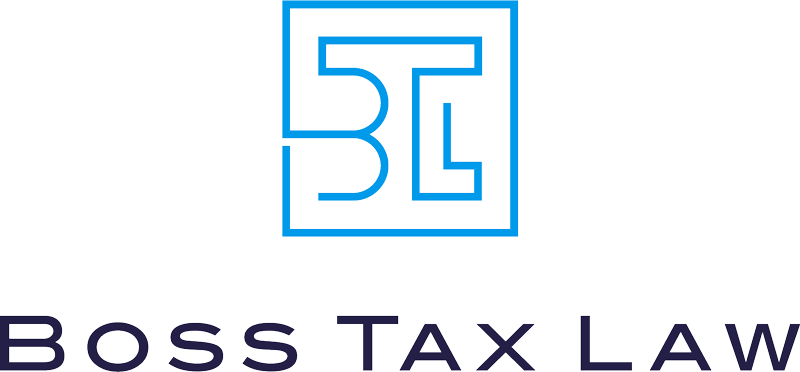When facing tax controversies with the IRS, choosing the right tax attorney can mean the difference between a favorable resolution and costly mistakes. As a former IRS agent turned tax attorney, I’ve witnessed firsthand how proper representation impacts case outcomes.
Whether you’re dealing with an audit, collection action, or tax court litigation, the attorney you select will significantly influence your experience and results. With the IRS currently facing workforce challenges and budget constraints, having the right advocate is more critical than ever.
Why These Questions Matter
Tax controversies are high-stakes situations where experience, strategy, and specialized knowledge are paramount. Many taxpayers make the mistake of hiring inadequate representation, leading to missed deadlines, unfavorable settlements, and unnecessarily complicated resolutions.
The right tax attorney possesses not just tax law knowledge but understands IRS procedures, negotiation strategies, and the complex administrative and judicial processes involved in tax controversies.
10 Questions to Ask Before Hiring a Tax Attorney
1. What percentage of your practice focuses specifically on tax controversy work?
Look for an attorney who dedicates at least 50% of their practice to tax controversies. Specialists who focus primarily on tax disputes will have deeper expertise than those who handle tax cases occasionally alongside other practice areas like estate planning or corporate work.
Red Flags: Vague answers like “we handle all types of cases” or attorneys treating tax controversies as a sideline rather than a primary focus.
2. Have you personally handled cases similar to mine?
Tax controversies come in many forms: audits, appeals, collections, tax court litigation, innocent spouse relief, voluntary disclosures, and employment tax issues, among others. Each requires different approaches and expertise.
While specific experience with your situation is valuable, what’s more important is the attorney’s demonstrated ability to navigate complex tax matters and their thoughtful approach to your specific circumstances.
Red Flags: An attorney who can’t provide examples of similar cases or who avoids discussing their experience with your specific issue.
3. What is your experience with the IRS?
Understanding how the IRS functions internally gives attorneys significant advantages. Former IRS employees or attorneys with extensive experience interacting with different IRS divisions will navigate your case more effectively.
Look for familiarity with the Internal Revenue Manual, IRS administrative procedures, and tax law.
Red Flags: Limited direct interaction with IRS personnel or unfamiliarity with how different IRS divisions operate.
4. What specific strategy would you recommend for my situation?
This question helps evaluate an attorney’s analytical approach. A good tax attorney will ask probing questions before recommending any strategy and should explain the pros and cons of different approaches.
Red Flags: One-size-fits-all approaches or guarantees of specific outcomes, especially promises to settle tax debt for “pennies on the dollar” without thoroughly analyzing your financial situation.
5. What is your fee structure?
Understanding billing practices helps avoid surprises and ensures representation fits your budget. Look for clear explanations of hourly rates, flat fees, or hybrid arrangements.
An experienced attorney should provide realistic cost estimates based on similar cases they’ve handled.
Red Flags: Reluctance to provide specifics, pressure to pay large upfront retainers, or vague answers about potential total costs.
6. Who will be working on my case?
Many firms have multiple attorneys and staff members handling different aspects of cases. You should know exactly who will be working on your case, especially who will represent you before the IRS or in court.
Red Flags: Meeting with a senior attorney for the initial consultation but having your case primarily handled by unsupervised junior attorneys or staff.
7. How will we communicate throughout my case?
Effective communication is essential during tax controversies, which can take months or even years to resolve.
Look for clear communication protocols, including expected response times, regular update schedules, and direct contact information.
Red Flags: Vague answers about accessibility, indications of limited availability, or communication primarily through assistants rather than attorneys.
8. What is your approach to working with the IRS?
Different attorneys have different interaction styles with the IRS. The most effective representatives know when to collaborate with the IRS and when to firmly advocate for their client’s position.
Red Flags: Either extreme – overly aggressive stances creating unnecessary conflict or excessive deference to the IRS that fails to protect your interests.
9. How do you stay current with changing tax laws?
Tax law changes constantly through legislation, regulations, and court decisions. Your attorney should demonstrate specific continuing education efforts, professional memberships, or publications to stay current.
Red Flags: Minimal investment in ongoing tax education or vague answers about how they stay updated.
10. Can you provide references from similar cases?
Past client experiences provide valuable insight into what working with this attorney will be like.
Look for a willingness to connect you with past clients with similar issues (while respecting confidentiality) or testimonials from past clients.
Red Flags: Inability to provide any references or testimonials from past clients.
Conclusion
Taking time to thoroughly evaluate potential tax attorneys isn’t just due diligence—it’s an investment in the success of your case. The right representation can save you money, stress, and potentially years of dealing with the IRS.
When facing tax controversies, asking these ten questions will help you identify an attorney with the expertise, experience, and approach needed to effectively advocate for your interests and achieve the best possible resolution.
About the Author
Andrew Bosserman is a tax attorney and founder of Boss Tax Law. Before establishing his practice, Andrew worked as an IRS agent, giving him unique insights from both sides of tax controversies. He dedicates 100% of his practice to resolving tax disputes and helping clients navigate IRS challenges.
